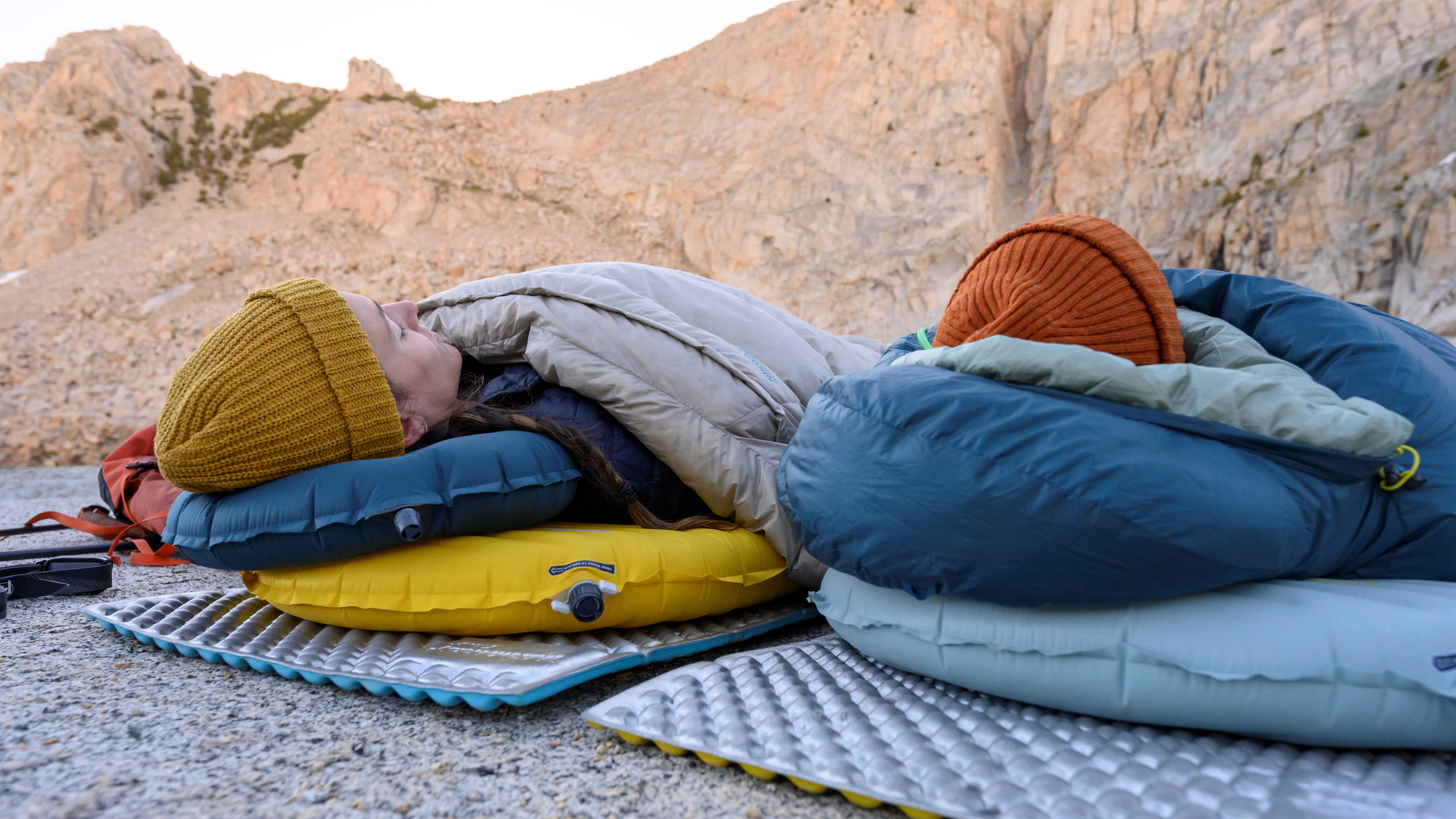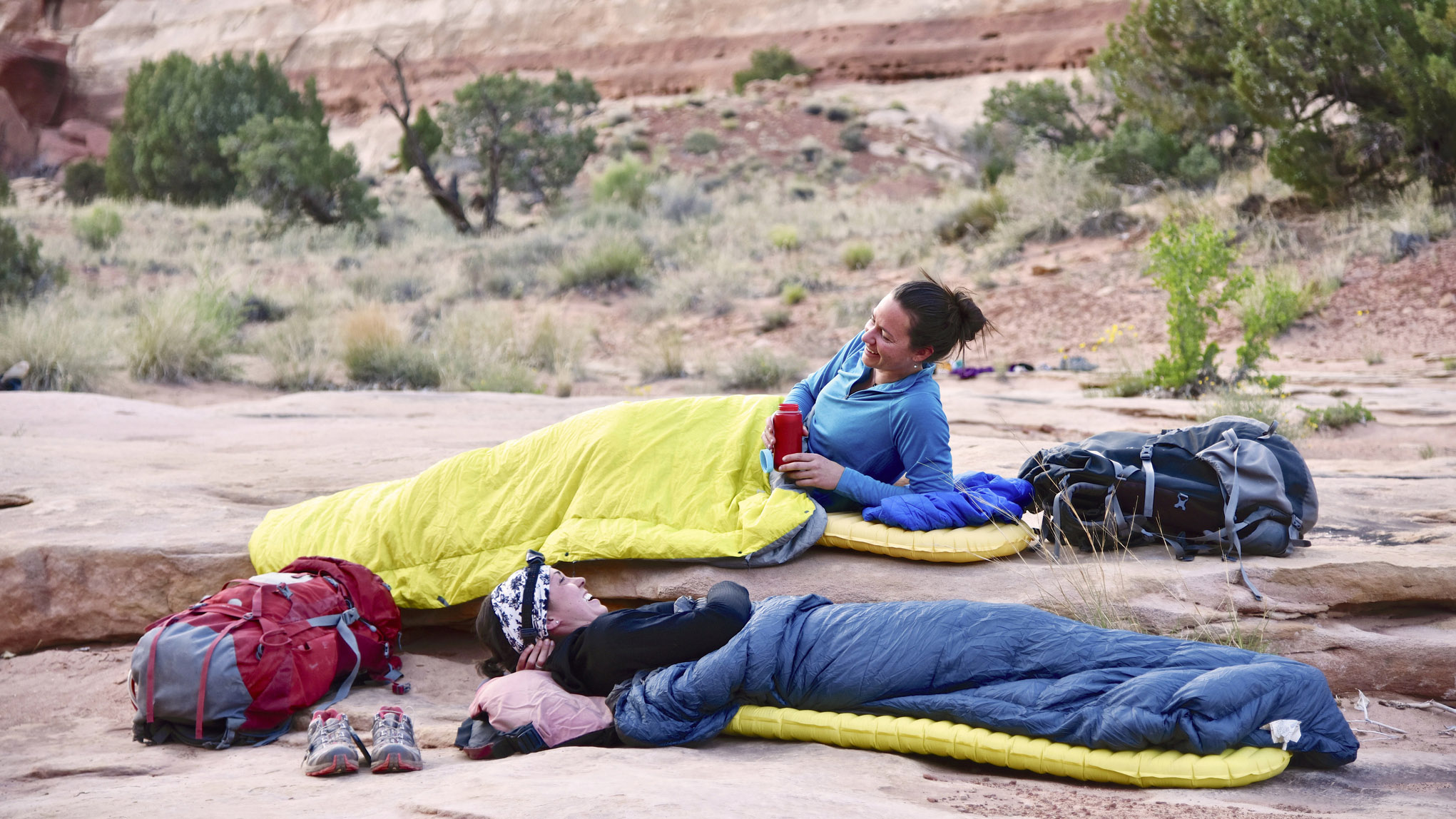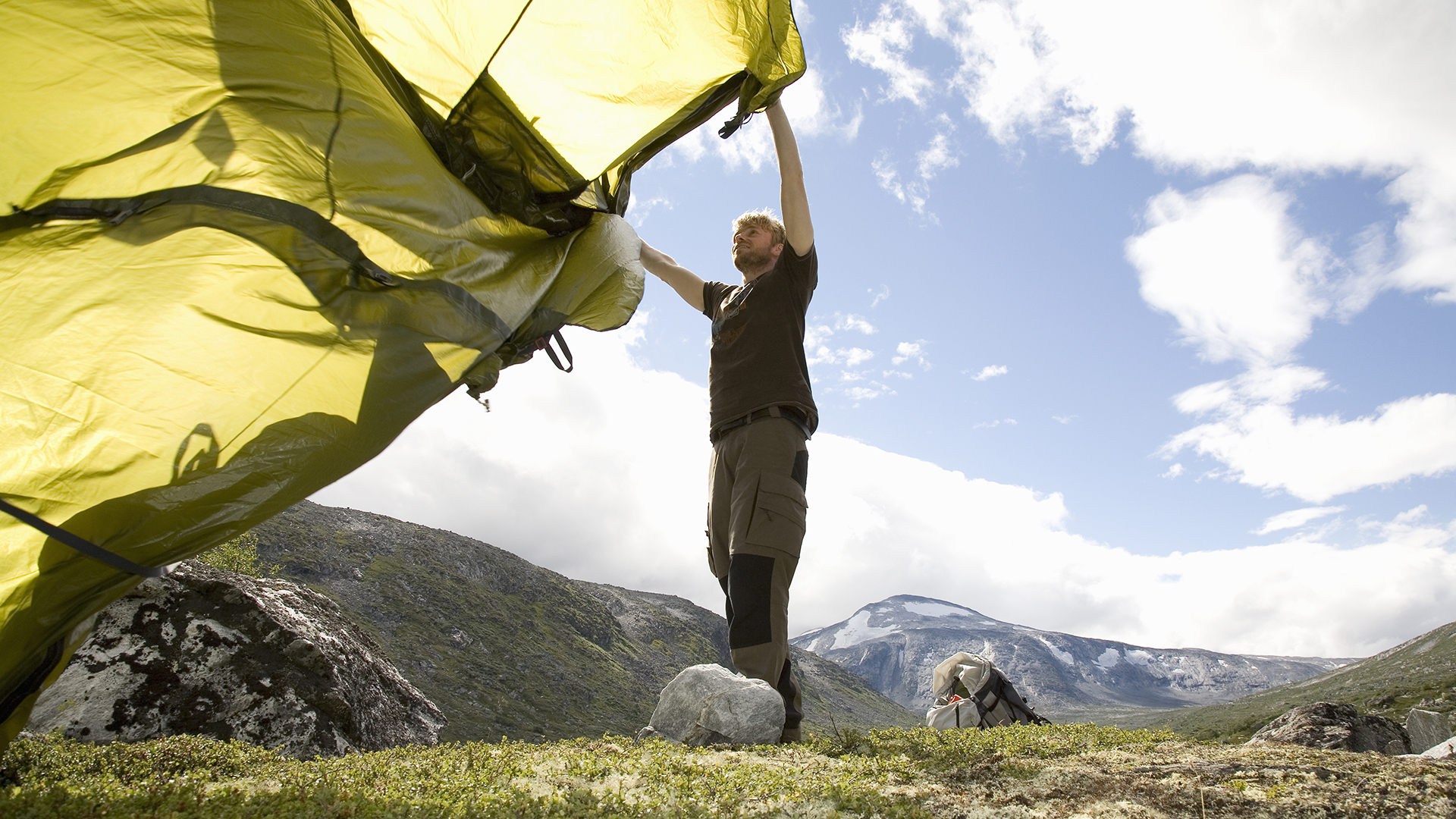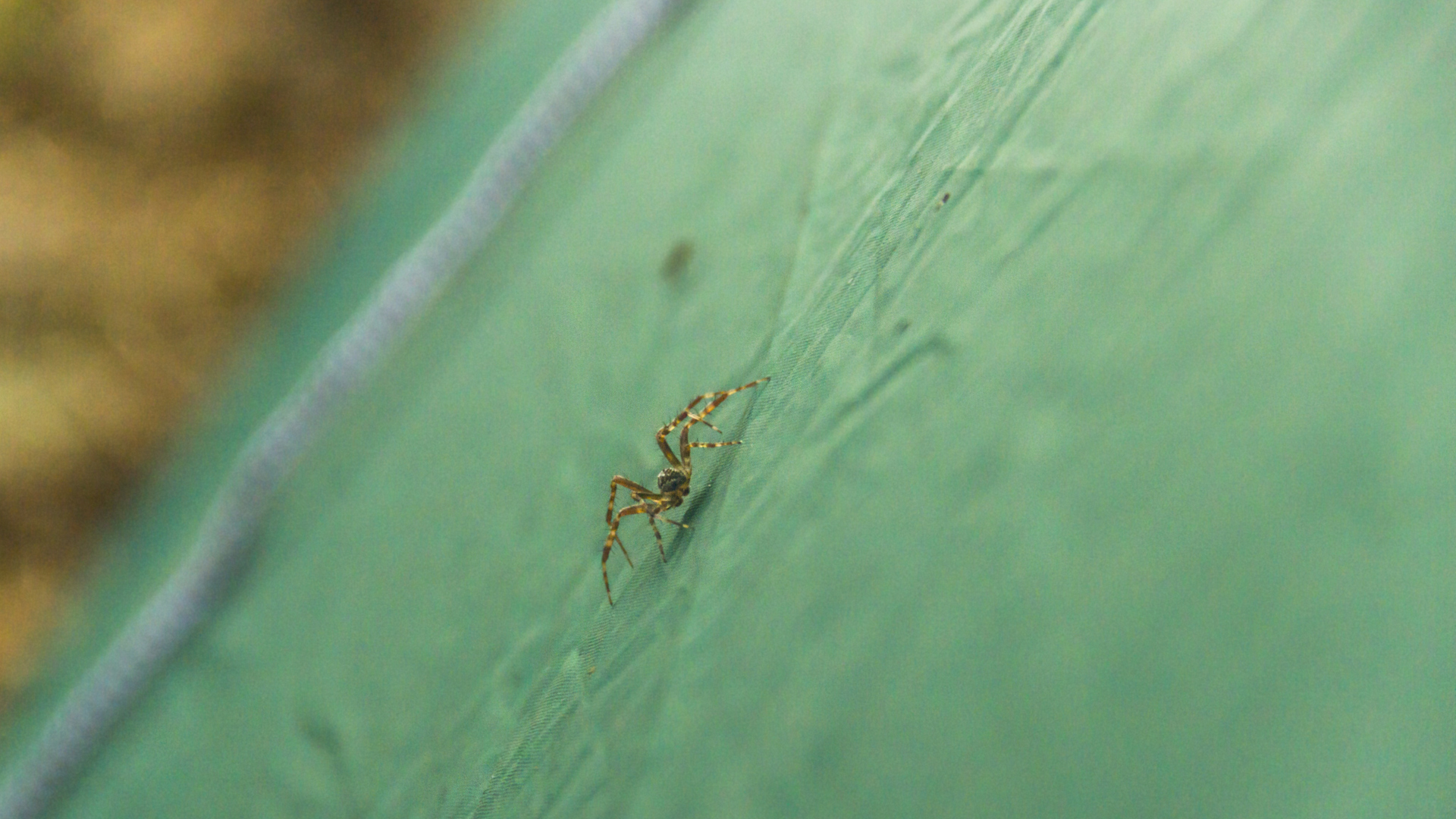
Dreaming about camping isn’t always the same thing as actually going camping. In your dreams, camping is romantic – you’ve got nothing but pristine wilderness for miles and an obstructed view of the stars all night long. It’s the simple life dialed up to the max.
In reality though, camping can involve a fair amount of work, from setting up your tent to purifying water to cook with. Then when you finally get into your tent, you realize you can't even see the stars, condensation builds up overnight and when you finally drift into a deep sleep, the fly sheet flapping in the breeze wakes you up.
But what if we told you that you could lose the tent altogether? Of the various tent alternatives out there, cowboy camping is arguably the most exciting. Basically it means camping without a tent, or any shelter, and just relying on your sleeping pad and bag. But what about rain? And scorpions? Sleeping under a blanket of stars sounds dreamy – but is it all it’s cracked up to be? In this article, we compare cowboy camping vs tent camping to help you understand what you’re really getting yourself into when you ditch the canvas.

Cowboy vs tent camping: the views
If you’re sleeping without a tent, needless to say the views will be breathtaking. At any point in the night, just open your eyes and you’ll be met with the sight of a billion stars scattered across the night sky.
Meanwhile, if you’re in a tent, the stargazing may not be so memorable. Mostly you’ll just be looking at the inner walls of your tent. That said, if the weather is nice enough to be cowboy camping, it’s also nice enough to camp without your rain fly, so you can still get a sneak peek of the night sky with all the added benefits of having a tent.
Cowboy vs tent camping: ease of setup
In terms of setup alone, cowboy camping is easier than tent camping because you don’t have to set up a tent. All you need to do is inflate your pad, shake out your sleeping bag and lie down.
Tents these days aren’t too difficult to set up, but there’s always some annoyance at having to thread your poles through the right sleeves, match the rain fly to the tent inner and stake out your tent properly. Then again, if you’re cowboy camping, you might have to look a little harder to find the right campsite in the first place, since you’ll want to be well away from water to avoid mosquitos.

Cowboy vs tent camping: cost and pack weight
Since you don’t have to buy a tent for cowboy camping, in theory it could save you hundreds of dollars and several kilos, but in all honesty, you’ll probably bring a tent for backup and then make the call at bedtime, so in reality it’s probably not any cheaper or lighter. That said, if you're only ever planning on camping once, cowboy camping is a great way to do it without breaking the bank.
Cowboy vs tent camping: protection
This all depends on what you want protection from. If it’s the weather, then a tent will shield you from the wind and the rain and cowboy campers are fully exposed to the elements (though you should only be doing it in places like the desert when the forecast has no precipitation).
If it’s just the cold you’re worried about, a tent can definitely provide a windshield, and that’s important if you’re camping above treeline, but in truth most of your insulation comes from your sleeping pad and bag. Assuming you’re not expecting extreme cold, you won't lose too much heat by ditching the tent. To be safe, we’d recommend avoiding cowboy camping when night-time temperatures drop below the mid-fifties in Fahrenheit (that’s mid-teens in Celsius).
If you’re worried about getting chomped by a mountain lion, wolf or bear, you’re definitely going to feel more exposed by not having a tent, but the reality is that most wildlife will give you a wide berth, unless you’re doing something crazy like sleeping with an open pot of jam next to your head. Furthermore, people do occasionally get attacked by bears and the like while they’re in a tent – like the Texan camper who woke up with his head in jaws of 300 lb bear. Stories like these show that if an animal really wants to go for you, they won’t let a flimsy tent get in the way and unfortunately, the same is probably true for humans who want to harm you.
What’s most likely to want a nibble of you are smaller critters, like mosquitos and ticks, and an insect could crawl inside your ear. A tent will do a better job at protecting you from these menaces, however you can mostly offset this by choosing dry locations, staying away from low scrub and long grass and you could bring a mosquito head net and some insect repellent with DEET as a backup.

Cowboy vs tent camping: privacy
One thing you will definitely not get a lot of when you’re cowboy camping is privacy. Your tent provides a place where you can retreat from the prying eyes of other hikers, change clothes and chill out.
If you want some privacy, cowboy camping may not be for you unless you’re solo camping in the wilderness, far from the trail and unlike to encounter anyone else. That said, you can also jump behind a bush if you need to change clothes or carry a camping towel that you can change underneath.
Cowboy vs tent camping: the verdict
If you’re even considering cowboy camping, you can see that it has lots of benefits for the adventurous among us, but it’s simply not always possible. If you’re spending the night in a desert environment under clear skies when it’s not too cold, you might really love the wildness and opportunity to commune with the stars, but if there’s even a hint of rain in the forecast, you’ll probably want a tent as backup.
Tent camping might mean more pack weight and set up, but in general is more predictable and reliable than cowboy camping, and there are other ways to enjoy the stars – from your camping chair before bed, for example.
That said, there are two more options that might offer you the perfect midpoint between these two: bivy camping and hammock camping. Sleeping in a bivy sack is super minimal, and these can be designed so that your face can be uncovered but still give you a bit more protection if the weather doesn’t go your way. Meanwhile, though hanging a hammock involves some setup, it can be a fabulous way to feel a little more free when you have an adventurous spirit.







